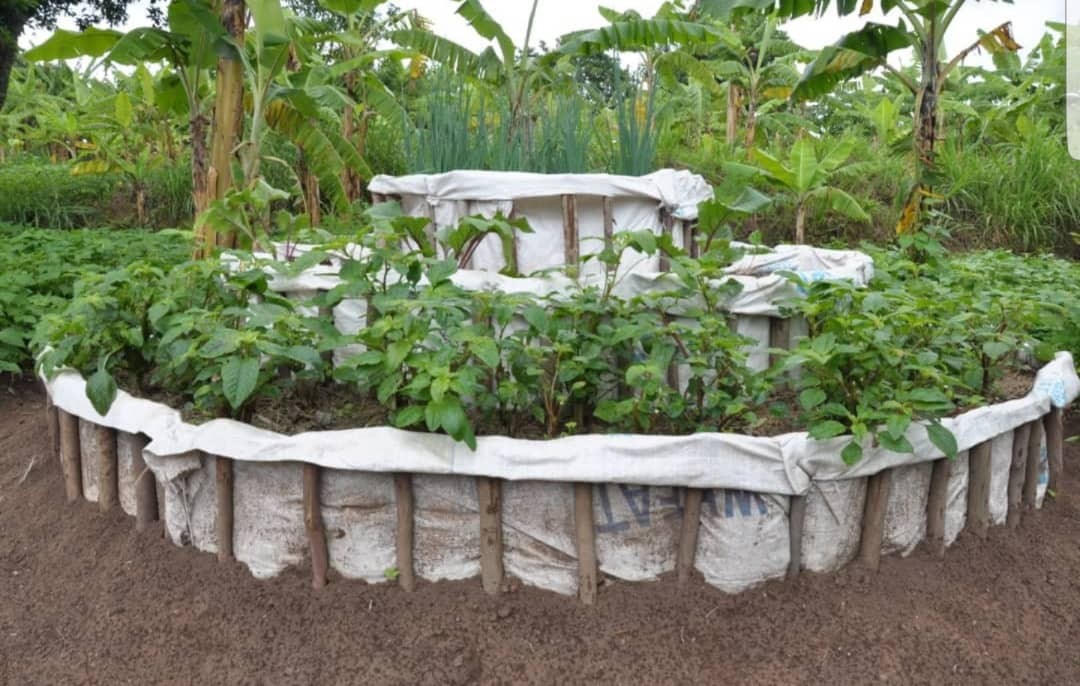In Rwanda, the rise of kitchen gardens small, household gardens filled with fruits, vegetables, and herbs has become a powerful movement toward food security, healthier diets, and sustainable living. Amid rising food prices and the challenges of climate change, kitchen gardens offer families a reliable source of fresh, organic produce right at their doorsteps.
This article explores the diverse benefits of kitchen gardens, sharing testimonies from Rwandans who have embraced this practice to improve their lives and communities.
Improved Nutrition and Health:
Kitchen gardens provide a direct source of nutrient-rich foods, making it easier for families to incorporate fresh vegetables into their diets. This helps combat malnutrition, especially in rural areas where access to fresh produce may be limited. Leafy greens, carrots, tomatoes, and beans grown at home offer essential vitamins and minerals that improve overall health, especially for children and the elderly.
Testimony:
Marie Mukamana, 36, a mother of three in Rulindo District, shares,
“Since I started my kitchen garden, my children eat more vegetables than before. I see a difference in their energy and health. Growing food ourselves also saves us money on groceries every month.”
Financial Savings and Food Security:
Growing vegetables at home reduces the need to buy produce at markets, helping families save on food expenses. For low-income households, a kitchen garden is a sustainable way to achieve food security without depending solely on market prices, which can fluctuate. This practice also creates a buffer in times of scarcity, ensuring families have something to eat even during difficult seasons.
Testimony:
Jean Nshimiyimana, 42, from Musanze, remarks,
“Food prices keep rising, but with our kitchen garden, we have fresh vegetables all year round. I no longer worry as much about feeding my family, even if prices go up. It’s like having a small farm at home.”
Environmental Benefits and Biodiversity:
Kitchen gardens promote environmental sustainability by encouraging organic farming practices and reducing the use of synthetic fertilizers and pesticides. Many Rwandan households use compost from kitchen scraps, which enriches the soil naturally and reduces waste.
Furthermore, kitchen gardens help preserve biodiversity by cultivating indigenous plants and vegetables, which are often more resilient to local pests and weather conditions.
Testimony:
Christine Nyirahabineza, 29, an environmental activist in Kigali, explains,
“Having a kitchen garden has taught me a lot about sustainable farming. We recycle compost and use no chemicals, which helps the environment and keeps our produce fresh and natural. I believe everyone can benefit from a garden like this.”
Empowerment and Community Building:
Kitchen gardens encourage self-sufficiency and empower individuals, especially women, by giving them control over a vital aspect of family life. Additionally, communities that adopt kitchen gardening often form networks to share techniques, seeds, and resources. This practice fosters community resilience and strengthens social bonds, as neighbors come together to help each other grow and sustain their gardens.
Testimony:
Agnes Karungi, 50, from Nyagatare District, shares,
“Our kitchen garden has connected us with other families in our village. We share seeds and tips on how to grow more effectively. It’s rewarding to know we’re all working toward better health and food security together.”
Educational Value for Future Generations:
Kitchen gardens provide a hands-on learning experience for children, teaching them valuable skills in agriculture, nutrition, and sustainability. As children participate in planting, watering, and harvesting, they gain an appreciation for natural food sources and develop a stronger sense of responsibility.
Testimony:
Eric Mvuyekure, a primary school teacher in Huye, says,
“We started a small kitchen garden project in our school, and the children love it. They’re excited to see the plants grow and learn how food is produced. It’s a great way to teach them about the importance of healthy eating.”
The kitchen garden movement is transforming the lives of Rwandan families, promoting healthier diets, financial savings, and environmental stewardship. By cultivating these small yet impactful spaces, Rwandans are not only improving their own well-being but are also contributing to a more sustainable and self-reliant society. In a world facing environmental and economic challenges, kitchen gardens offer a simple, accessible solution with powerful, lasting benefits.
BY NIKUZE NKUSI Diane






